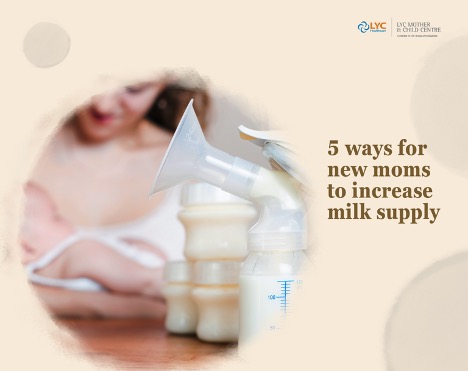
Breastfeeding is a great way for you to bond with your baby and an important step in your baby's healthy development. However, sometimes new mothers may face the problem of insufficient milk supply. To help mothers better cope with this situation, here are some ways to boost milk production.
Firstly, frequent breastfeeding or pumping is key to stimulating the mammary glands to produce more milk. In the newborn stage of the baby, it is recommended that mothers breastfeed every 2-3 hours, which can help stimulate the mammary glands and promote milk production. As your baby grows, gradually increase the interval between breastfeeds as needed, but still continue breastfeeding or pumping frequently.
Secondly, getting enough rest is essential to maintain hormonal balance and milk production. Breastfeeding mothers need extra energy and ample rest to meet her own needs as well as those of her baby. Poor sleep can affect hormone production, which can affect milk supply. Therefore, you should try to arrange your time reasonably and try to have enough rest.
Make sure you stay hydrated. Breastfeeding requires extra fluids, and if you are dehydrated, it may lead to insufficient water in the body, which will affect the production of milk. Therefore, you should maintain adequate water intake to maintain the body's water balance.
A balanced diet is also one of the important factors to promote milk production. Choosing a nutrient-dense, balanced diet helps provide the nutrients you need, including protein, fat, carbohydrates, vitamins, and minerals. Protein and fat, in particular, are the main building blocks of milk, so making sure you get enough of these nutrients is important to maintain your milk supply.
In addition, you also need to know how to relieve stress. Stress can affect hormonal balance, which in turn affects milk supply. You can try relaxing activities such as yoga, deep breathing or walking to reduce stress and boost physical and mental wellbeing.
By breastfeeding or pumping frequently, getting enough rest, staying hydrated, eating a balanced diet, and reducing stress, you can increase milk production and provide adequate nutrition and love for your baby. At the same time, you should also seek the advice of a professional doctor or nutritionist to ensure the health of your baby and yourself.